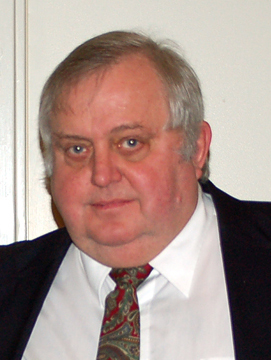There I was yesterday appearing before the Joint Committee on
Revenue at the Statehouse for the second time in three weeks.
I had been dropped off at the South Attleboro T station that morning
to take commuter rail into Boston. To my amazement the train was
right on time delivering me to South Station at 12:25 ― just like
the schedule said! All this after a snowstorm the day before!
The reason for my appearance at the 1:00 hearing was to testify in
favor of a CLT-filed bill,
Senate 1552 which would limit Prop 2˝ override elections and
allow an underride in all communities.
There were few bills heard before ours; I was called to testify
around 2:30. The Joint Committee on Revenue has 16 members ― 10
from the House and 6 from the Senate. However the entire time
I was there only five members of the committee showed up for the
hearing. I guess the rest were in New Hampshire stumping for their
favorite presidential candidate ― ya think?
I pointed out to committee members that our bill allows a
Proposition 2˝ underride election to be held if activists collected
the signatures of 5% of a city or town’s registered voters. Under
the present law either an override or underride can be put on the
local ballot only by a vote of the selectman or city council.
However while thousands of overrides to increase taxes have appeared
on the ballot since 1981, very few underrides have. In fact since
1988 only about a dozen have passed out of the 351 communities in
the state according to the state Division of Local Services. The
reason, of course, is because very few boards of selectmen or city
councils will vote to possibly decrease taxes by having an underride
election in their community. CLT’s bill corrects this unfair
playing field and allows taxpayers a fighting chance to lower
taxes.
The other part of our bill allows Prop 2˝ overrides to be on the
ballot only at a biennial state election. It also states that the
local appropriating authority may direct that not more than three
override questions be on the ballot. The reason for this change was
because many times when overrides were defeated, proponents kept
putting them right back on the ballot until they were successful.
Some communities would have two or even three override elections in
a year! It consumes a lot of time and energy for activists on both
sides of any question ― and communities have to shoulder the
needless cost of multiple elections. Having this type of election
once every two years would solve this problem. This ”biennial”
language was actually in the original text of the 1980 Proposition
2˝ ballot question.
After finishing my testimony which took 3-4 minutes, I noticed only
one or two more people testified on a couple of other bills on the
committee's calendar.
I was able to take the 3:30 train out of South Station – secure in
the knowledge that the MBTA would deliver me safely to South
Attleboro.
 |
 |
|
Chip Faulkner
Director of Communications |